Top 10 Most Peaceful Countries According to the Global Peace Index
Finland in summer 🌞
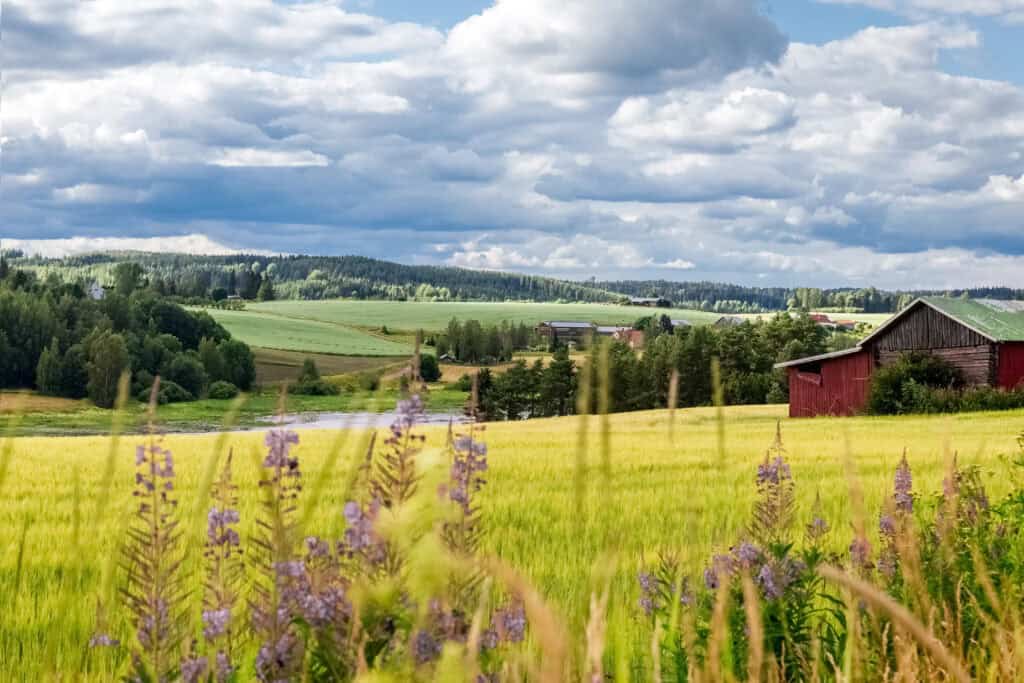
#10 Finland
For nearly a decade after the Global Peace Index was introduced in 2008, Finland remained firmly in the top 10. Then, by 2017, it began losing ground. Gradually, defense spending started increasing—and then it increased again, dramatically. When the Russia‑Ukraine war erupted in 2022, the military spending of Finland, which shares a 1,340-kilometer-long border with Russia, soared by 36%, hitting Cold War levels. In that year’s Peace Index, Finland was ranked 16th—its worst showing on record.
Still, Finland’s defense strategy remains traditionally focused on deterrence and cooperation rather than confrontation. At the same time, this Nordic nation boasts low crime rates, high levels of trust in institutions and a robust welfare state, all of which contribute to internal peace and a strong overall sense of security. Peace, unsurprisingly, also correlates with happiness. Underscoring its reputation as one of the world’s most virtuous and content countries, Finland is the perennial top performer of the United Nations Happiness Report.
Slovenia
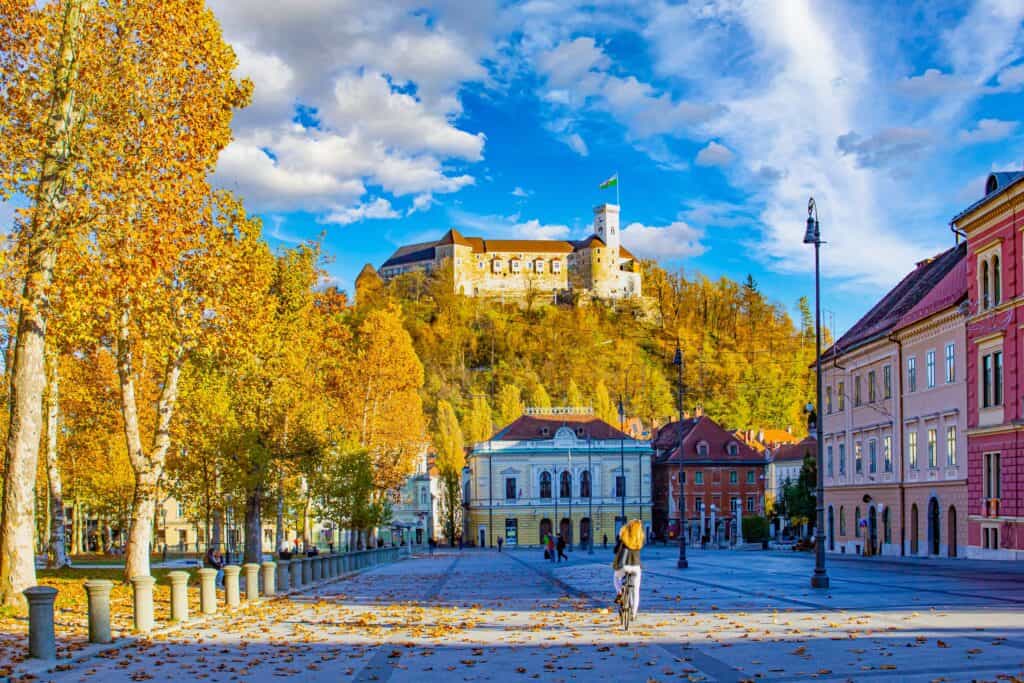
#9 Slovenia 🇸🇮
A legend says that when God distributed the land to all the nations, Slovenians were overlooked because there were so few of them (there are still only 2.1 million). To apologize, he gave them a little piece of paradise he had saved for himself. Slovenia’s territory—half of which is covered by forests—boasts one of the greatest levels of biodiversity on the continent: within only a one-hour drive from the capital, Ljubljana, you can either swim in the Adriatic Sea or climb the Julian Alps. It is the only country from Central and Eastern Europe to place in the top 10, setting it apart as the most peaceful nation in the CEE region. (Still, Czechia is not far behind, at no. 11, with Hungary and Croatia making it into the top 20 as well.)
Altogether, of the 33 countries in Central, Eastern and Western Europe, 13 showed improvements in peacefulness, 19 deteriorated, and one remained unchanged. As a result, while Europe remains the most peaceful region in the world, it also recorded a deterioration of 0.57% from last year. The reason? You guessed correctly: once again, the conflict between Russia and Ukraine led many nations to increase their defense spending, with 24 of them recording a deterioration in the militarization domain.
Denmark
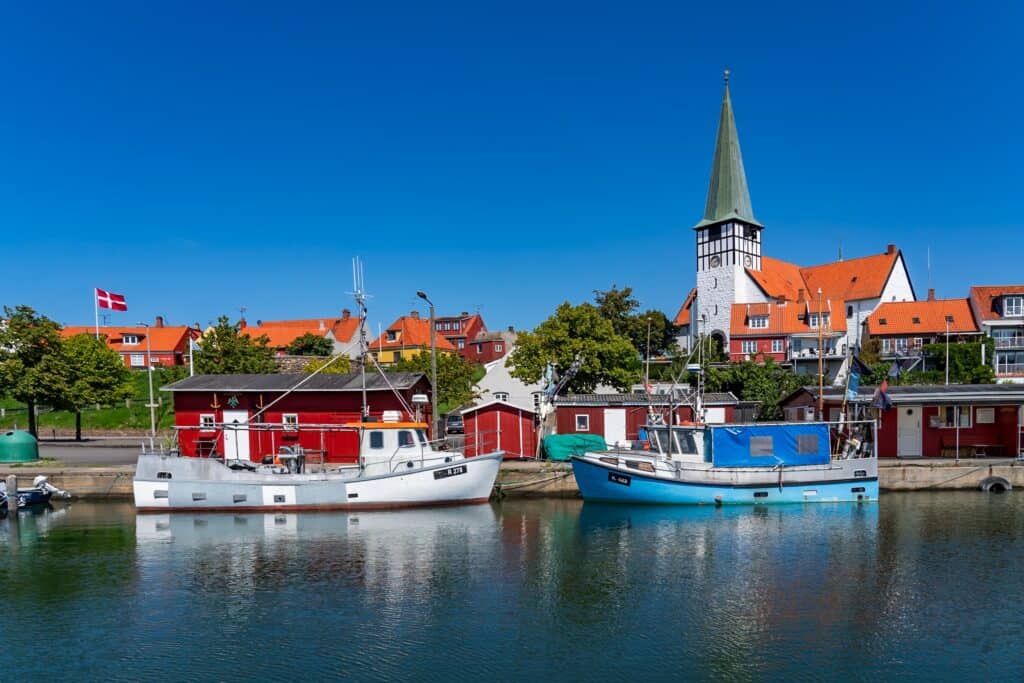
#8 Denmark 🇩🇰
Sometimes gaining one or two spots and sometimes losing them, since 2008 Denmark has never dropped below the fifth place in the Global Peace Index—that was until last year. Now ranked 8th, Denmark’s drop is more a result of other countries’ improvements than a significant decline in its score, which has decreased by only 0.037% in the previous edition of the report, and by 0.057% this time around.
Such relatively minor changes in the ranking only tell us that the kingdom is doing well. A safe country to travel and live in, Denmark is characterized by a high degree of political stability, freedom of the press and respect for human rights. It also boasts a high level of income equality and is frequently ranked as one of the happiest nations in the world.
Still, to safeguard all that happiness and those excellent standards of living, this nation of about 6 million spends a lot. Denmark’s overall standing in the Peace Index is weighed down by its performance in the militarization domain: along with Norway and Bangladesh, in 2025 Denmark registered the steepest decline in this index subcategory, falling from 24th to 59th place.
Portugal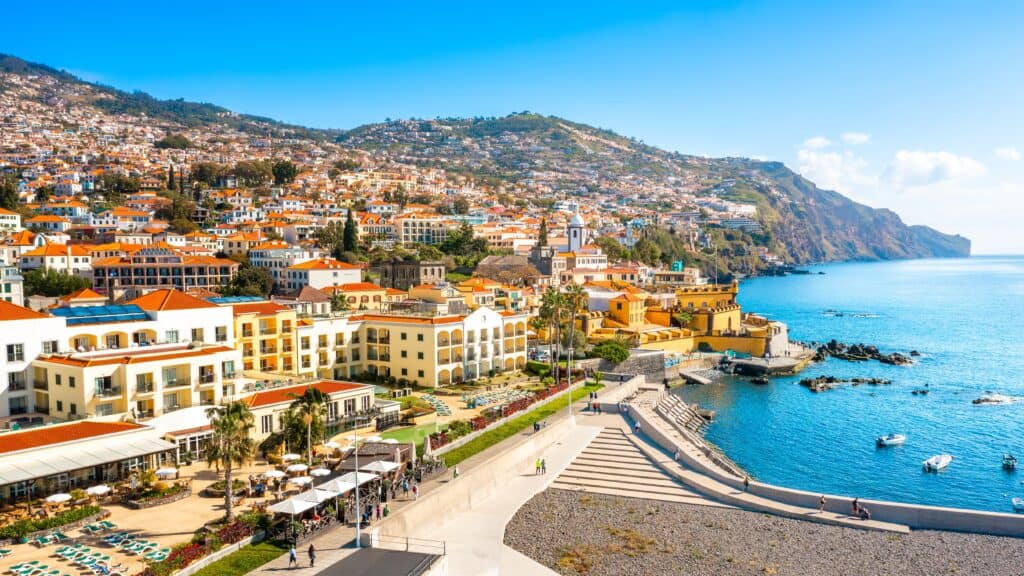
Portugal marches to the beat of its own drum when it comes to peace and safety. Over the past few years, this nation of about 10 million people has emerged as one of the biggest climbers of the Global Peace Index, moving from the 18th spot it held in 2014 into the top 10—a trend that shows no sign of reversing. This year, Portugal gained one additional position.
Ranking above the industrialized nations’ average in terms of housing, work-life balance, personal security and environmental quality, Portugal is also considered one of the top expat destinations due to its overall quality of life. Even better, there is no need to break the bank to enjoy the Portuguese way of living: the republic remains one of the most affordable destinations on the continent.
Singapore
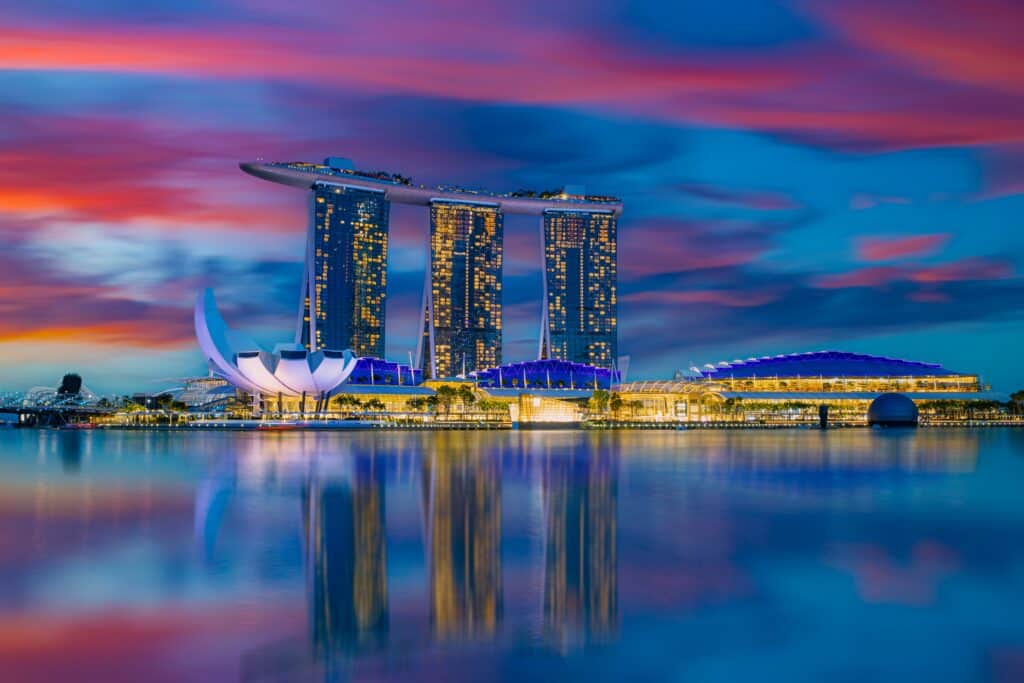
#6 Singapore 🇸🇬
While the Global Peace Index report shows an increasingly violent world, Singapore has become more peaceful. Way more peaceful: when the ranking was first launched in 2008 Singapore occupied the 22nd spot—in 2019, it broke into the top 10, and has remained there since. What prompted this remarkable jump? The IEP points out that the largest improvements in the ranking are usually broadly based, while large deteriorations in peace are usually driven by just a few indicators.
So, while Singapore scored highly in societal safety and security and low levels of ongoing domestic and international conflict, holding it back from the highest tier of the ranking—as is often the case—is its militarization level. Why does Singapore need so many people in its police and military forces, and why is its arms expenditure so high? The city-state depends on seaborne trade for its prosperity, so having the naval resources to ensure the smooth passage of vessels through the Strait of Malacca, the narrow stretch of water that serves as a gateway between the Indian and Pacific Oceans, is crucial.
Switzerland
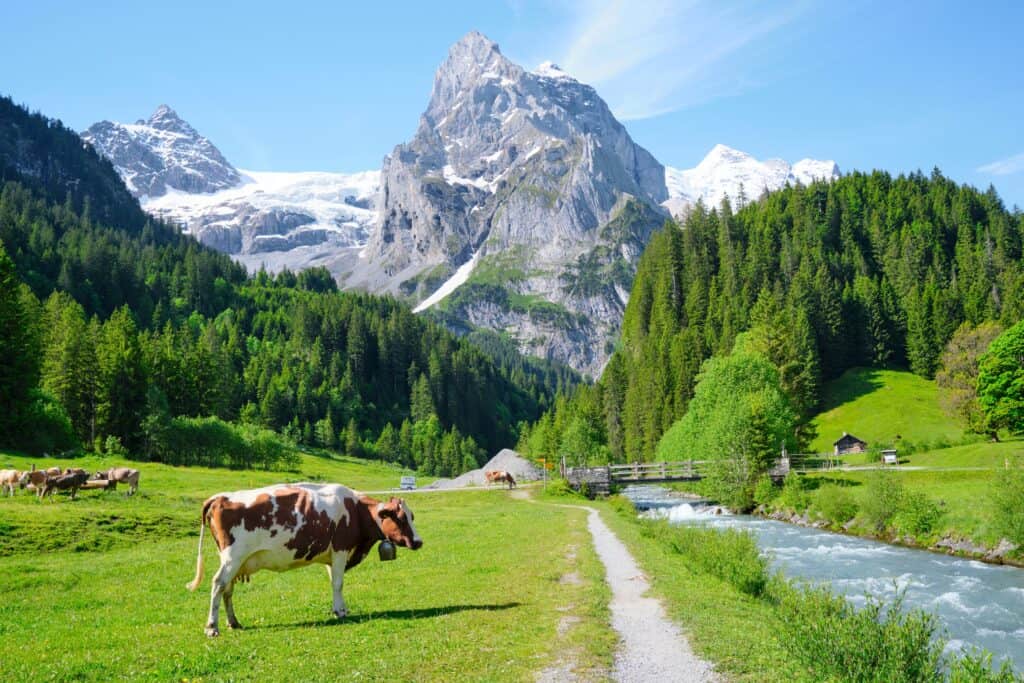
#5 Switzerland 🇨🇭
Switzerland is exactly as one would expect: a place with an exceptionally high degree of safety in society, superior political stability, and close to nonexistent international conflict. However, its surprising degree of militarization (total active and reserve army personnel are estimated in the range of 150,000 to 200,000 out of a population of about 8.9 million) continues to hold the nation just short of the very top positions of the ranking. Switzerland—along with other well-ranking peaceful nations such as France(#74) , Sweden(#35) , Italy(#33) , Norway(#32) , Germany(#20) and the Netherlands(#14) —is also among the world’s top weapons exporters per capita in the world.
Still, by most measures, Switzerland remains a prosperous country where linguistic and religious diversity is embraced. It also ranks above the average among OECD nations when it comes to subjective well-being, income, health and education and environmental quality.
Austria
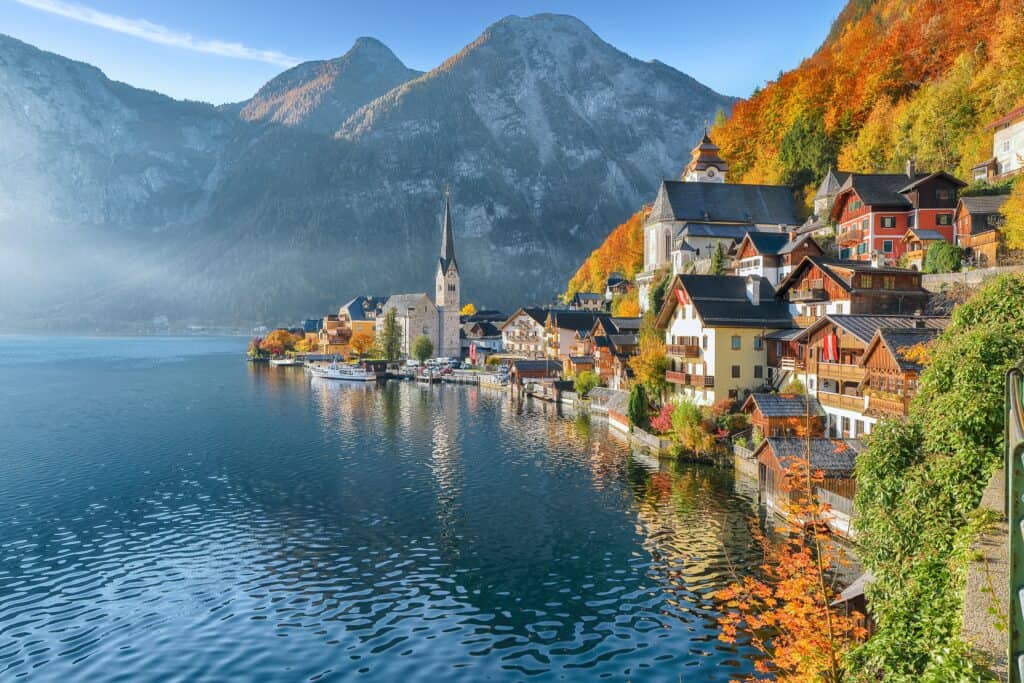
#4 Austria 🇦🇹
Since the end of the Cold War, this small landlocked country of about 9 million has moved from its peripheral position at the borderline between East and West closer to the center of a united Europe. As a young member of the EU and outside of NATO, Austria prided itself on trying to get along with rival political blocs and embracing new forms of cooperation with its neighbors.
However, while Austria performs well in many measures of well-being such as income, jobs and housing, social tensions have been growing in recent years fueled especially by anti-migrant campaigns of the popular right-wing Freedom Party (FPÖ). When in November 2020 an ISIS sympathizer shot and killed 4 people and injured 23 others in the city center of Vienna, the government responded by unveiling broad anti-terror measures that included the ability to keep convicted individuals behind bars for life and facilitate electronic surveillance for those who are released. As a consequence, Austria experienced one of the largest deteriorations in peacefulness in Europe owing to a worsening of the terrorism impact indicator.
Then again, violence in society takes many forms, and can shake the foundations of a nation in the most unexpected ways. Just days before the 2025 Global Peace Index Report was released, a gunman attacked a high school in the southern city of Graz, killing 10.
New Zealand
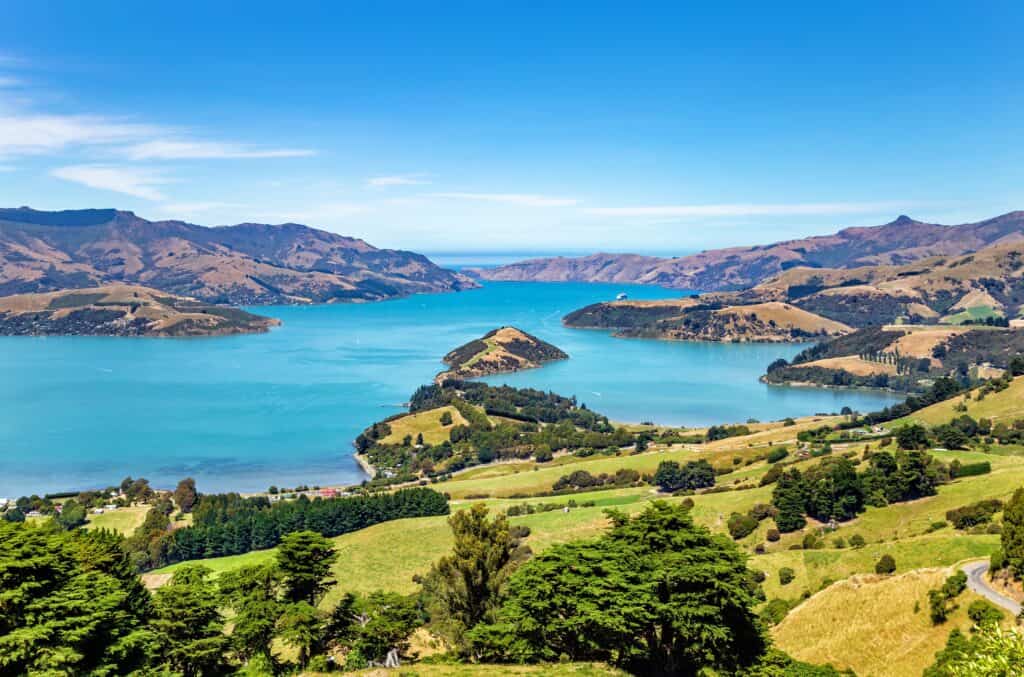
#3 New Zealand 🇳🇿
Scoring almost perfect marks in the domains of societal safety and domestic and international conflict, this peaceful country is widely considered a wonderful place to live. New Zealand, the most peaceful country in the Asia-Pacific region, recorded an improvement in peacefulness over the past year of 3.1%, with just two indicators deteriorating: weapons imports and military expenditure as a percentage of GDP, which increased to stem personnel losses and revamp outdated naval and aerial capabilities.
At around the same size as the United Kingdom but with a population of roughly 5.2 million people, New Zealand ranks above the average among OECD members in education, healthcare, jobs and earnings. All this, however, also comes at a cost: the shortage of affordable housing is increasingly making it difficult for people with low incomes to buy homes, with the gap between rich and poor considered the top economic issue facing New Zealand by 20% of its citizens.
Ireland
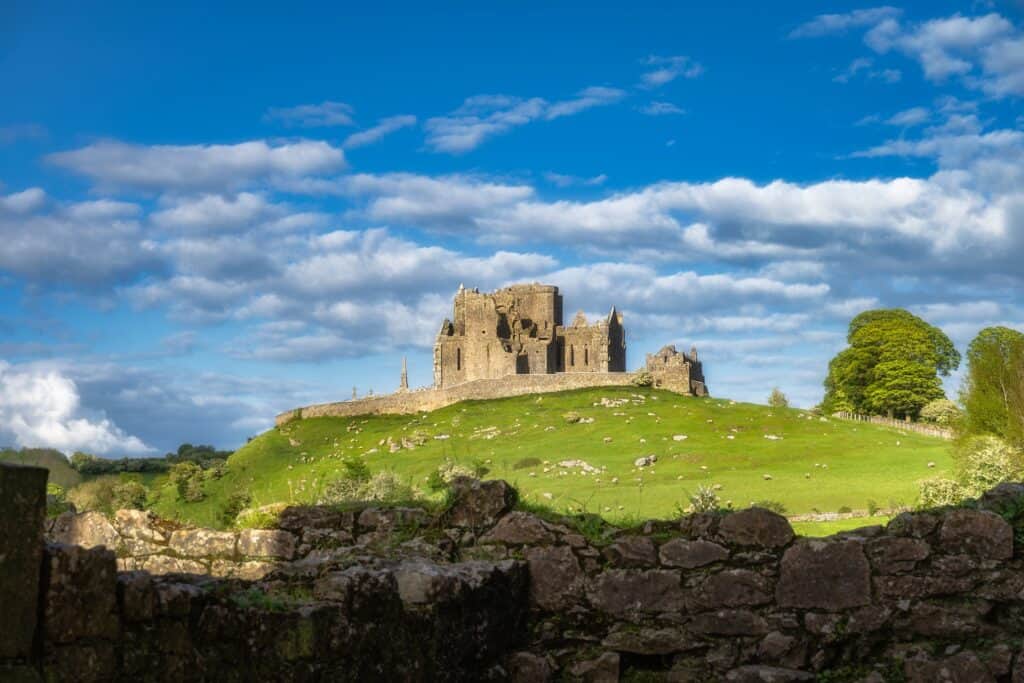
#2 Ireland 🇮🇪
Ireland is one of the wealthiest, most developed and happiest nations in the world. It is also quite peaceful: in 2020, it managed to gain seven positions and land in the fourth spot of the Global Peace Report, the highest position it had ever attained in the ranking. In the following years, it occupied either the third or the second position, which is where we find it today.
Make no mistake: Ireland did not become a peace-loving nation overnight—centuries of tense relations with the United Kingdom can attest to that. Today though, due also to its longstanding independent status and neutral army (meaning that it is not a member of NATO), the Irish Republic is routinely ranked as one of the safest countries in the world. That does not mean it has become immune from political and social turmoil—during the pandemic, for example, Ireland saw its share of violent anti-lockdown demonstrations.
Still, when it comes to the economic cost of violence, Ireland performs better than almost all countries in the world. Last year, the Institute for Economics & Peace estimated the toll at just 2.86% of GDP, compared to a global average of 13.5%, with only Malawi, Bangladesh, Indonesia, and Madagascar doing better in this domain.
Iceland
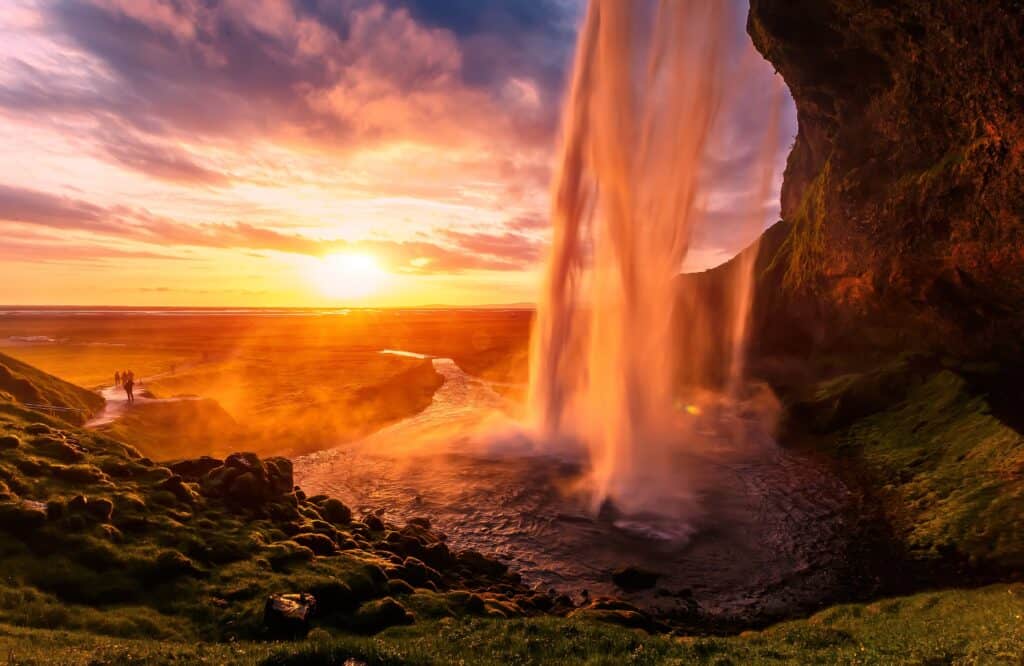
#1 Iceland 🇮🇸
Icelanders can sleep well at night: they live in the most peaceful nation in the world. No news is good news when it comes to tranquil Iceland: it is the 18th year in a row that it retains the number one spot. With no standing army, navy or air force and the smallest population of any NATO member state (about 400,000 people), Iceland also enjoys record-low crime rates (to the extent that policemen generally don’t carry firearms), an enviable education and welfare system, and ranks among the best nations in terms of jobs and earnings and subjective sense of well-being.
But did we say that Icelanders’ idyllic peace faces no threats? In 2022, the Reykjavík police arrested four people in connection with preparations for a suspected terrorist attack. That was the first year that the country recorded any such activity. Luckily, no further incidents have been reported since then.
World’s Most Peaceful Countries 2025
| Rank | Flag | Country |
|---|---|---|
| 1 | Iceland | |
| 2 | Ireland | |
| 3 | New Zealand | |
| 4 | Austria | |
| 5 | Switzerland | |
| 6 | Singapore |
| 7 | Portugal | |
| 8 | Denmark | |
| 9 | Slovenia | |
| 10 | Finland | |
| 11 | Czech Republic | |
| 12 | Japan | |
| 13 | Malaysia | |
| 14 | Netherlands | |
| 15 | Canada | |
| 16 | Belgium | |
| 17 | Hungary | |
| 18 | Australia |
| 19 | Croatia | |
| 20 | Germany | |
| 21 | Bhutan | |
| 22 | Latvia | |
| 23 | Lithuania | |
| 24 | Estonia | |
| 25 | Spain | |
| 26 | Mauritius | |
| 27 | Qatar |
| 28 | Slovakia | |
| 29 | Bulgaria | |
| 30 | United Kingdom | |
| 31 | Kuwait | |
| 32 | Norway | |
| 33 | Italy | |
| 34 | Montenegro | |
| 35 | Sweden | |
| 36 | Poland | |
| 37 | Mongolia | |
| 38 | Romania | |
| 39 | Vietnam |
| 40 | Taiwan | |
| 41 | South Korea | |
| 42 | Oman | |
| 43 | Botswana | |
| 44 | Timor-Leste | |
| 45 | Greece | |
| 46 | Argentina | |
| 47 | Laos | |
| 48 | Uruguay | |
| 49 | Indonesia | |
| 50 | Namibia |
| 51 | North Macedonia | |
| 52 | Albania | |
| 53 | United Arab Emirates | |
| 54 | Costa Rica | |
| 55 | The Gambia | |
| 56 | Kazakhstan | |
| 57 | Sierra Leone | |
| 58 | Armenia | |
| 59 | Madagascar | |
| 60 | Bosnia and Hertzegovina | |
| 61 | Ghana | |
| 62 | Chile |
| 63 | Kosovo | |
| 64 | Serbia | |
| 65 | Zambia | |
| 66 | Moldova | |
| 67 | Uzbekistan | |
| 68 | Cyprus | |
| 69 | Senegal | |
| 70 | Liberia | |
| 71 | Malawi | |
| 72 | Jordan | |
| 73 | Tanzania | |
| 74 | France |
| 75 | Paraguay | |
| 76 | Nepal | |
| 77 | Angola | |
| 78 | Kyrgyz Republic | |
| 79 | Tajikistan | |
| 80 | Dominican Republic | |
| 81 | Tunisia | |
| 82 | Equatorial Guinea | |
| 83 | Bolivia | |
| 84 | Panama | |
| 85 | Morocco | |
| 86 | Thailand |
| 87 | Cambodia | |
| 88 | Turkmenistan | |
| 89 | Trinidad and Tobago | |
| 90 | Saudi Arabia | |
| 91 | Rwanda | |
| 92 | Algeria | |
| 93 | Jamaica | |
| 94 | Cote d’Ivoire | |
| 95 | Azerbaijan | |
| 96 | Peru | |
| 97 | Sri Lanka | |
| 98 | China |
| 99 | Eswatini | |
| 100 | Bahrain | |
| 101 | Guinea-Bissau | |
| 102 | Cuba | |
| 103 | Republic of the Congo | |
| 104 | El Salvador | |
| 105 | Philippines | |
| 106 | Guyana | |
| 107 | Egypt | |
| 108 | Guatemala | |
| 109 | Georgia | |
| 110 | Mauritania | |
| 111 | Nicaragua |
| 112 | Benin | |
| 113 | Uganda | |
| 114 | Zimbabwe | |
| 115 | India | |
| 116 | Papua New Guinea | |
| 117 | Gabon | |
| 118 | Guinea | |
| 119 | Lesotho | |
| 120 | Belarus | |
| 121 | Mozambique | |
| 122 | Djibouti | |
| 123 | Bangladesh |
| 124 | South Africa | |
| 125 | Honduras | |
| 126 | Togo | |
| 127 | Kenya | |
| 128 | United States of America | |
| 129 | Ecuador | |
| 130 | Brazil | |
| 131 | Libya | |
| 132 | Eritrea | |
| 133 | Burundi | |
| 134 | Chad | |
| 135 | Mexico |
| 136 | Lebanon | |
| 137 | Cameroon | |
| 138 | Ethiopia | |
| 139 | Venezuela | |
| 140 | Colombia | |
| 141 | Haiti | |
| 142 | Iran | |
| 143 | Niger | |
| 144 | Pakistan | |
| 145 | Palestine | |
| 146 | Turkey | |
| 147 | Iraq | |
| 148 | Nigeria |
| 149 | North Korea | |
| 150 | Central African Republic | |
| 151 | Somalia | |
| 152 | Burkina Faso | |
| 153 | Myanmar | |
| 154 | Mali | |
| 155 | Israel | |
| 156 | South Sudan | |
| 157 | Syria | |
| 158 | Afghanistan | |
| 159 | Yemen | |
| 160 | Democratic Republic of the Congo | |
| 161 | Sudan | |
| 162 | Ukraine | |
| 163 | Russia |
Source: Global Peace Index 2025

No comments:
Post a Comment